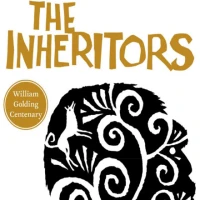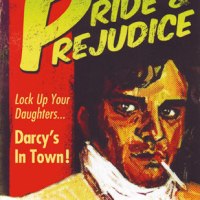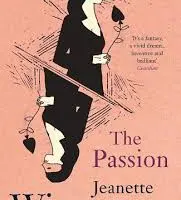Doctor Glas, by Hjalmar Söderberg and translated by Paul Britten Austin
Perhaps people would not have so much confidence in me if they knew how badly I sleep at nights.
Recently I went on a business trip to Stockholm. I wanted to read some Swedish literature, so took a copy of Strindberg’s The Red Room which I hugely enjoyed. The other book that I bought for the trip was Doctor Glas, by Hjalmar Söderberg. Emma of book Around the Corner had recommended it to me on twitter, having read a review of it by Caroline of Beauty is a Sleeping Cat.
By pure coincidence London’s just had a staging of a one-man production of a theatrical version of the book, starring Krister Henriksson of Wallander fame. I bought tickets, and before the play could shape my view forever of the characters and the story I read the book.
Doctor Glas was written in 1905, and is set a few years earlier. It’s important to remember then that it’s a contemporary novel, radical in its day. Its themes, which include sex, abortion, women’s rights to control their own bodies, euthanasia and murder were thought shocking and controversial, and by and large they still are though at least we can openly talk about them now.
Glas is a Stockholm doctor. He’s well educated, naturally, but deeply lonely (“My loneliness I have borne about with me through the crowd as a snail his house.”) and his life is lived without hope (“I shall never set eyes on the coast where I wish to build and live.”).
The narrative takes the form of his private diary (I can feel some potential readers bailing now, but it works here). Here’s how it opens:
I’ve never known such a summer. A sultry heat-wave since mid-May. All day a thick cloud of dust hangs unmoving over streets and market-places.
Immediately the atmosphere is airless and oppressive. There’s no reason not to believe that description, within the fiction that’s likely how the weather is. This isn’t though an omniscient narrator talking, it’s Doctor Glas himself. Authors frequently use weather as symbol for emotion, but here the link is direct. The brooding atmosphere may be external, but it’s also very much internal.
Glas is a solitary man, with but a few friends. He’s reserved, repressed would perhaps be a better word. He’s an aesthete and a rationalist, perhaps too rational. He’s in his thirties but hasn’t been touched by a woman since he was an adolescent, hasn’t touched one save as their doctor. He wishes sex were something nobler than it is, something which could be done in church, and curses the society which speaks of marital duties and makes it an obligation.
– But latterly I’ve come to know more about myself than in my whole life before. I’ve learned to feel and understand that my body is me. There is no joy, no sorrow, no life at all, except through it. And my body knows very well it must die. It feels it, as an animal can feel it. And that is how I now know there is nothing for me on the other side of death.
Into this arid life comes the young wife of the Reverend Gregorius. Gregorius is old, ugly, Glas finds him physically and intellectually repugnant and so he has every sympathy when Mrs Gregorius comes to him with a strange request. At first he thinks it one he’s heard before from a number of women, that he perform an abortion. He’s refused all such pleas, not as he notes from respect for human life or his duty as a doctor, but because the risk to his position to benefit a stranger simply isn’t worth it to him.
Mrs Gregorius though wants something altogether different. She wants Doctor Glas to persuade her husband to stop demanding sex. She is beautiful, alive and desperate and Glas falls in love with her and decides to help her. He does this even though he soon guesses the reason she now finds her husband’s touch intolerable is that she has found herself a lover of her own age.
Glas persuades Gregorius that his wife is unwell and that he must keep away from her if she is to recover. Gregorius agrees, but soon declares that his wife’s duty to her husband is greater than her duty to her health and that God will see her right. Glas then pretends that Gregorius needs a rest cure, alone, for the sake of his heart. Gregorius though will inevitably return, and however much he fears his heart will fail he is too lecherous an old man to keep away from his young and pretty wife for long. What to do? It’s not as if Glas thinks there’s any special value to human life after all.
Comparisons to Therese Raquin and to Crime and Punishment are obvious here (not least as Glas says at one point “I’ve read Raskolnikov, I’ve read Thérèse Raquin.”) Caroline makes the much more apposite comparison though to Arthur Schnitzler, and I think she’s spot on in doing so. This is psychological drama of the highest order. An intense examination of a single person’s, well, soul for want of a better word.
There’s a rich vein here of ethical debate of course. What does make human life worthwhile? If the Reverend Gregorius, by living, makes his wife’s life intolerable should he continue to live? Is though the Reverend Gregorius so terrible? He comes across that way, but his wife has every reason to want him gone and Doctor Glas is hardly impartial here. Reading between the lines it’s not clear how despicable the Reverend actually is.
Gregorius forces himself upon his wife against her will, and he does so even though he thinks it could harm her health. He’s from a society though where the wife is the property of the husband, where the provision of sex is a duty, an obligation. He doesn’t see himself as a wrongdoer, to him it’s his wife that’s acting badly by refusing him.
Glas finds the Reverend’s conversation obvious and his company tedious, but the Reverend himself shows Glas every friendship. What’s more, Glas is a hypocrite, or at the very least arbitrary. Women who come to him in desperation he closes his heart to. Mrs Gregorius’ situation troubles him only because he secretly loves her.
Mrs Gregorius meanwhile is oblivious to much of this. She has enlisted Doctor Glas’s help, but there’s no evidence she knows how far he might go on her behalf. She has broken her marriage vows, refused her husband, slept with another man, but shouldn’t she have the right to control her own body? To have a chance at happiness? Today she could divorce, but that’s not an option here. Marriage for her is irrevocable, but then she knew that when she married the Reverend and it becomes apparent that nobody pressured her into that decision. Still, should one mistake overshadow the rest of her life?
These aren’t easy questions, even now, and it’s part of the sheer craft of this novel that as it progresses it becomes increasingly clear there are no obvious right answers.
Above all of this is the masterly psychological portrait of Glas himself. This distant and lonely figure, locked off from humanity and observing them dispassionately save with regard to his own empty desires. The edition I read comes with a brilliant foreword by Margaret Atwood who speaks convincingly and intelligently about the symbolism around his full name (Tyko Gabriel Glas, an astronomer, an angel of Annunciation and destruction, a brittle transparency which can either reflect ourselves or through which we can see the world).
It’s an intense read. Söderberg is too smart though to make it relentless, and in places it’s very funny (not least when the Reverend Gregorius considers serving communion wine in the form of pills to avoid transmission of germs on the chalice). The result is a book that is perfectly judged, remorseless yet human. Like Doctor Glas in fact.
Caroline links in her review to another at a blog I wasn’t previously aware of: A Work in Progress. That review is here. If you don’t know that blog already then I’d suggest checking it out, it looks very good.
I’ll close by talking a little about the theatrical production I saw of this. It was in Swedish, with English surtitles, which was refreshing. The staging was very simple, just Doctor Glas’s room and Krister Henriksson pacing about it speaking his thoughts as Doctor Glas writes his in the book. The backdrop occasionally changed colour to reflect mood, and in the main was simple and effective.
Strictly speaking Henriksson is too old for the part, but his performance was such that it didn’t matter. I did have one issue with the production though, which is that during the course of the book Doctor Glas argues with himself, shifts from mood to mood, experiences extremes of emotion. It’s an actor’s dream and Henriksson is more than able to portray all of it, but the time constraints meant that often I’d have liked to see him given a little more space to develop a particular state of mind. The play felt a little crowded to me, and could perhaps have used another 20 minutes, half an hour (but if it had no doubt much of the rest of the audience would have grown restive, the number of British theatregoers who want one-man shows in Swedish to be made longer than they are is I suspect quite small).
Despite that criticism, the play did bring the book to life to me. Oddly, when I read it I didn’t wholly connect it to the parts of Stockholm I’ve seen. It was only when I heard Henriksson deliver the lines that I realised that I’d had a drink on the very hotel terrace where Doctor Glas meets his friends. Listening to Henriksson, having been recently to Stockholm, the words came alive and I could directly link what I’d seen to what Glas sees. Söderberg wrote from life, and if you go to Stockholm you can (and I inadvertently did) walk in Doctor Glas’s shadow.
If you do choose to read Doctor Glas, and you should, I’d strongly recommend this translation. I spent a fair while comparing translations and this for me was the right one. It’s not free, but it is excellent, and really a book as good as this deserves the best translation you can find.
Update: John Self alerted me on twitter that he reviewed this one back in 2008. His review is here, and as ever is worth reading.














Great review, Max and thanks for the link.
This book was really a discovery for me. It’s short but very complex.
I’ve read it in German, I thought that would be close to the original than the English but I could be wrong. Maybe another reasons why Schnitzler felt much more similar, I don’t think though. As much as I liked Thérèse Raquin from a psychological point of view it’s not as nuanced and subtle. Psychoanalysis has left a trace in both Schnitzler’s and Söderberg’s work.
In a way I can imagine a play based on this but I found the description of the summer, the heat very important. That can obviously not be captured.
I’d like to read more of him. Not sure you can find more in English. There are quite a lot of titles available in German.
Danielle read this as part of a Slaves of Golconda readalong.
There book choices are often interesting.
Here’s the link to the Glas
http://slavesofgolconda.blogspot.ch/2013/01/doctor-glas.html
Thanks for the review Caroline. Without your review Emma might not have recommended it to me to read.
It’s great isn’t it? Short but very complex as you say. The Schnitzler comparison hadn’t occurred to me, but as soon as I saw it at yours it struck me as evidently true.
I actually have very mixed views on Thérèse Raquin, which is an oddly lopsided book and which has some real pacing issues in my view (it was remade as a Korean vampire movie recently, rather a good one, but the movie is flawed in just the places the book is).
Absolutely on psychoanalysis. I’m not sure there is more in English, but if there is I’d like to read it.
Thanks for the Slaves link. It’s not a blog I was aware of. Great blog title.
I bought this after reading Caroline’s review. I knew I’d like it as I share some tastes with Caroline, and now that you enjoyed it too, it’s a foregone conclusion that I’ll enjoy it. I’ll wait a while before I read it though.
I have mixed feeling about T. R too– not even close to Zola’s best
I think it’s definitely one you’ll like. No harm in waiting a while, but it’s a good one so worth saving for when you want something with some real psychological depth.
It’s a great blog title. I think Rohan Maitzen is the driver behind the Slaves. If you don’t know her blog yet, you will find it very interesting
http://www.openlettersmonthly.com/novelreadings/
Enough recommendations.
A Korean vampire movie based on Thérèse Raquin, now that sounds interesting. I must admit I speed read the novel, I didn’t pay a lot of attention to the structure.
I’m glad you enjoyed it and thanks for the link. Your review confirms it’s a book I’d probably like too. But it’s OOP in French. Is it difficult to read? I wonder if I could read it in English. (I read The Red Room in English after all)
The movie is Hunger, by Chan-wook Park of Oldboy fame. He’s one of Korea’s most interesting directors, and while I have a fair few criticisms of the film it’s worth seeing. Even his flawed work is better than most, and a lot of it is surprisingly beautiful.
Thanks for the blog link.
Emma, I wouldn’t say it’s a difficult read, no. It’s clean English if that makes sense, no use of slang that I recall and no tricksy stylistic techniques so with your excellent English I think you’d be more than fine. I wouldn’t say it’s any harder than The Red Room. Caroline, your view?
I don’t think it’s too difficult, Emma should be fine.
I like Chan-wook Park a lot. Lady Vengeance… I’m trying to find Hunger.
Lady Vengeance is tremendous. Oldboy got all the attention, and it’s a great movie, but the truth is I thought both the other vengeance movies even stronger.
Pingback: Looking back on 2013 | Pechorin's Journal
Pingback: Doctor Glas: Hjalmar Söderberg | His Futile Preoccupations .....